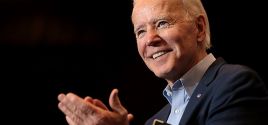Ridiculed By Americans Everywhere, Krugman Now Threatens, Gives Unsolicited Advice To Germany, Pisses Entire Nation Offby Tyler Durden, Zero HedgeJun. 24, 2010 |
Popular 
Biden Commutes Sentences of 37 of 40 Federal Death Row Inmates - Excludes Robert Bowers, Dylann Roof

U.S. 'Shoots Down Own Jet' Over Red Sea in 'Friendly Fire Incident'

Putin Accuses 'Ethnic Jews' of Tearing Russian Orthodox Church Apart

Ohio Senate Passes Bill Aimed at Outlawing Criticism of Israel, Criminalizing Gospel

Saudi National Rams Car Into Germans at Christmas Market in Suspected Terrorist Attack [UPDATED 2X]
 These days it's hard being a religious fanatic, also known as a Keynesian. It is even harder when you are Paul Krugman (sadly, the cornerstone of NYT's entire paywall strategy), and everyone in your own country is already sick and tired of, and openly ignores your constant appeals to drown the world in new and record amounts of debt, thus ignoring your appeals with impunity. So what do you do when nobody takes you seriously for thousands of miles around? Why you go even further - to the core of Europe in fact... where you proceed to threaten, badger, insult and give your unsolicited advice to anyone that listens. That "unlucky soul" in this case happens to be Germany daily Handeslbatt, which ran an interview with the "economist" in which Krugman stick not a foot, but an entire SS-20 nuclear warhead armed ICBM, in his mouth. And since Krugman is unaware, preaching the benefits of record deficit spending in Germany, ever since that little experiment in hyperinflation known as the Weimar Republic, tends to generate adverse reactions. Which is precisely what happened in this case. Luckily, now Krugman is a persona non grata in at least one country. Unfortunately, it is not the one in which his trite platitudes and melancholic remembrances of the golden days of Greenspan's credit bubble are still published on a daily basis. As the WSJ reports: Princeton University Prof. Krugman caused a stir in Germany this week with a stinging critique of Bundesbank President Axel Weber, who is considered a frontrunner to succeed Jean-Claude Trichet as head of the European Central Bank when Trichet’s term expires in October 2011. “If you are looking for someone who is aiming for zero inflation while unemployment is rising to 13%, then Weber is definitely the right guy,” Krugman said in an interview published in German with the business daily Handelsblatt.The verbal lashings of the Bundesbank head will continue until insanity returns: “Weber is concerned about inflation, when there is no inflation. I would rather see an ECB President who gives more weight to deflation risks and the risk of a protracted stagnation,” Krugman said, adding that he doesn’t know Weber personally. Before joining the Bundesbank Weber was an economics professor in Germany and fairly well known in U.S. academic circles.Yet trust a Keynesian to hope to achieve one thing, yet in reality obtain just an opposite result: rugman seems only to have bolstered Weber’s clout among Germans, who wear their anti-inflation obsession as a badge of honor. Germans often say that whereas the Great Depression dominates U.S. economic thinking, Germany’s experience with hyperinflation in the 1920s is its defining economic period of the 20th century, and one that must be avoided at all costs, even if it means slower economic growth.And when unsolicited advice is rightfully ignored, what next but to jump the shark and threaten your way in having someone to listen to your blabbering. Krugman didn’t stop with Weber. He has taken on Germany’s plans to rein in its budget deficit, which is already considerably smaller than the U.S.’s as a share of GDP. “German austerity will worsen the crisis in the euro area, making it that much harder for Spain and other troubled economies to recover,” he wrote in his New York Times column.Good work Krugman - you have just gained one more enemy to not just the Fed's monetary lunacy, but the president fiscal imprudence. That fiscal and economic policy critique probably won’t gain any more traction in Germany than his monetary policy one. Germans see their government finances and trade competitiveness as an example to be followed by Greece, Portugal and other troubled countries in Europe. And they clearly don’t see the U.S. model as one worth chasing.Luckily, in Germany people actually have brains and are able to respond to this kind of ridiculous sophistry: Wolfgang Franz, who heads the German government’s economic advisory panel known as the Wise Men, tore into Krugman — and the US — in an op-ed in the German business daily Wednesday, titled “How about some facts, Mr. Krugman?”We rarely touch upon the illustrious persona of Mr. Krugman as he tends to do a good job of involuntary self-immolation without our help. That said, we completely agree with the conclusion of the WSJ's Brian Blackstone: So if Krugman really wants to keep Weber from the ECB presidency, or at least cool some of his support in Germany, he might want to consider damning the Bundesbank chief with praise instead.Something tells us the Germans are done with P.K. And since we, unfortunately, are not, perhaps he should adopt the same reverse psychology in the US - just like a Goldman downgrade of something means buy buy buy, should Krugman become rational for a change and espouse a prudent approach of deficit cuts, every normal thinker in the US will be immediately forced to burn their copy of The Road To Serfdom. |



